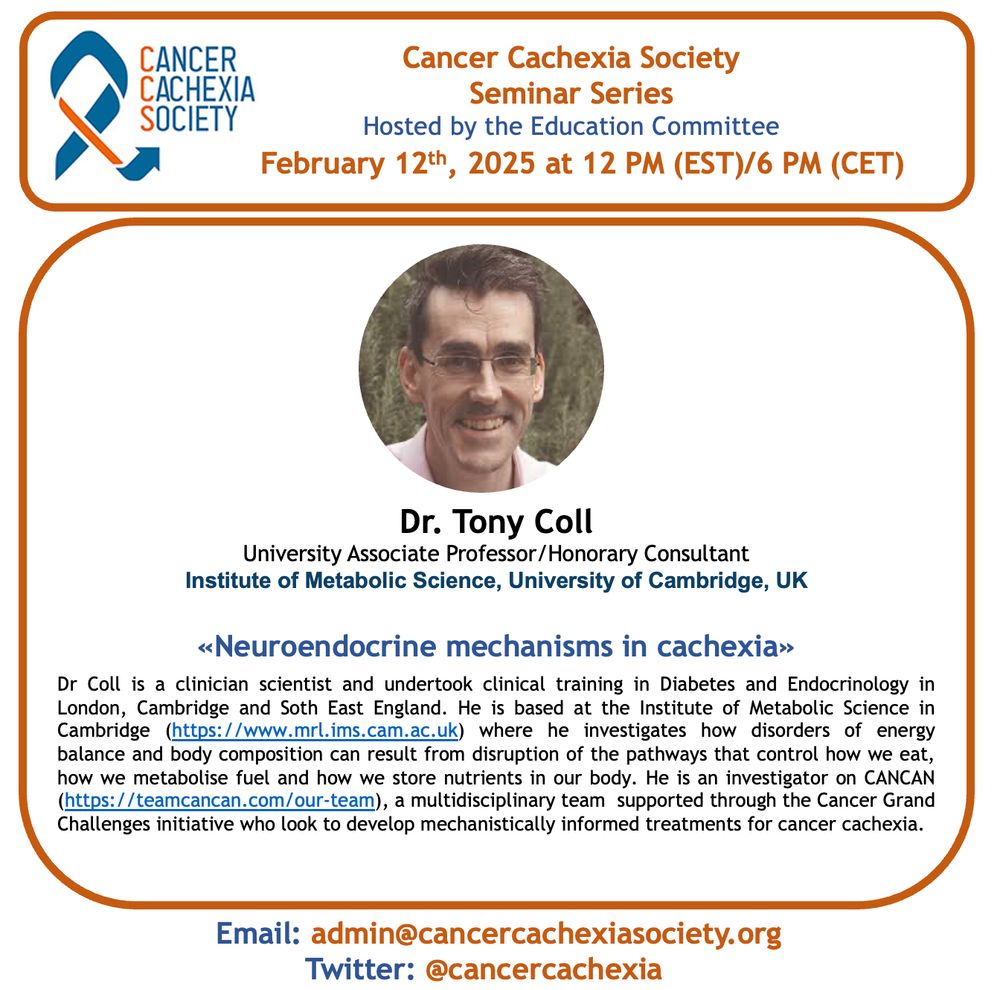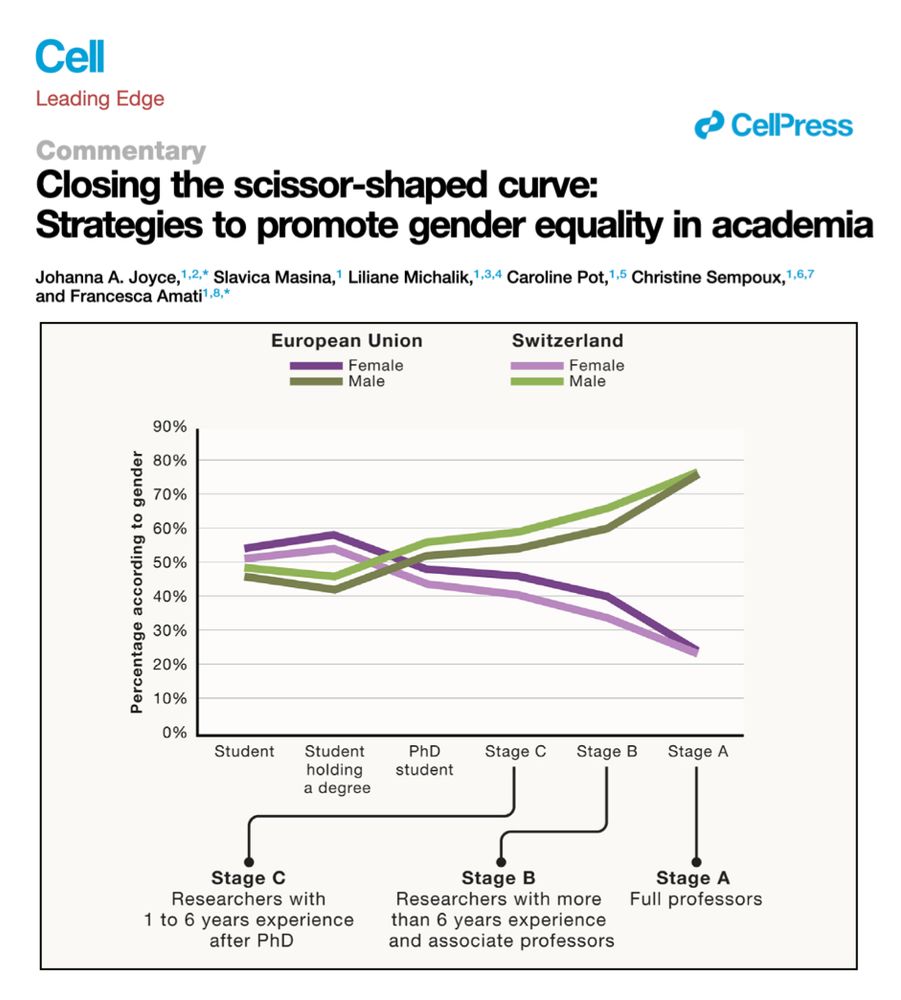Reposted by Laure B. Bindels
doi.org/10.1186/s401...

If your manuscript fit these expectations, please submit it to Microbiome ! @microbiomej.bsky.social
With Joy Watts, Kevin Theis, Víctor Carrion, Adam Ossowicki,
Co-authored by the Senior Editors, it aims to highlight current challenges in the field of environmental and host-associated microbiome research and provides a blueprint for contemporary studies of the microbiomes.
microbiomejournal.biomedcentral.com/articles/10....

Reposted by Laure B. Bindels
Seminars are open to everyone, please share!
See cancercachexiasociety.org for link.

Reposted by Laure B. Bindels
Seminars are open to everyone, please share!
See cancercachexiasociety.org for link.


Reposted by Laure B. Bindels
We have a fully-funded position (deadline: 05/01/25)! All details: tinyurl.com/2b3sre8a
Feel free to get in touch for more info!


So how can we ever achieve #gender #equality?
We discuss various strategies in this #Cell Commentary
#WomeninSTEM
www.cell.com/cell/fulltex...
🧵 1/

Reposted by Laure B. Bindels
Reposted by Laure B. Bindels
Deadline for applications 29th November. Apply here:
ore.ucc.ie
Job ID: 081111
